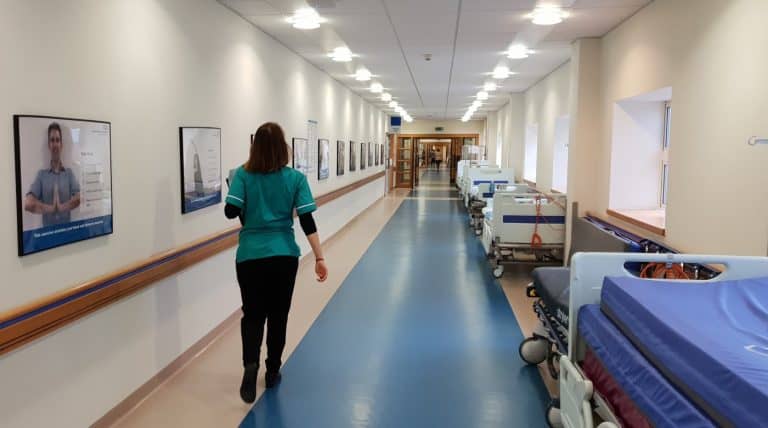Mums Matter
There is a culture in this country of new mothers downplaying some really significant physical and psychological injuries they have suffered during childbirth. New mothers are devoted to their newborn babies and will put the needs of the baby before their own. This is, of course, completely natural and normal, but so many women are suffering in silence without the support and treatment they need. That shouldn’t be the case.
From a physical perspective, women commonly suffer life changing injury during childbirth such as haemorrhages or vaginal tears which can occasionally lead to incontinence, surgical repair and in severe cases, stomas. Many women also suffer with anxiety, post natal depression or even PTSD if they have had a traumatic birth. All of these can be debilitating, yet many women are managing without assistance and sometimes juggling physical or psychiatric injury and a tiny new baby can be really hard. These women should be saluted, but they should also be properly supported.
Many women will accept that they might get a vaginal tear and suffer with some incontinence during pregnancy and birth. However, the severity of these injuries can vary widely. Most of the problems are treatable but the recovery will depend on the treatment given at the time.
Urinary Incontinence
Some urinary incontinence is considered normal during pregnancy and immediately following birth. During pregnancy the incontinence is usually because of the additional weight of the baby pushing on your bladder.
After pregnancy the incontinence is usually because the pelvic floor muscles have been stretched or damaged during childbirth. The pelvic floor is made up of layers of muscles that are below the bladder and womb and act as a barrier from the back bone to the pubic bone. The muscles are put under great strain during the birth to allow the baby room to be born. A prolonged labour or a big baby can make this worse. Assisted delivery with forceps or ventouse can also damage the pelvic floor muscles.
A weak bladder is sometimes also called Stress Urinary Incontinence. Many women will have experienced a sudden temporary loss of control during activities such as sneezing or coughing.
Urinary incontinence can be reduced and treated with pelvic floor exercises during pregnancy and after childbirth. It is often temporary but for more severe cases, women can have surgery to tighten or support the bladder.
Vaginal Tears
Many women experience tears during childbirth as they baby stretches the vagina. Most women will be prepared for the risk of suffering with some form of perineum tear (the skin between the vagina and anus) during childbirth and this is usually discussed thoroughly with your midwife before the birth.
A tear can happen naturally. However, the doctor or midwife may recommend a cut is made instead of allowing the tear. The cut is called an episiotomy. Either way, the vaginal opening is enlarged to allow more room for the baby to be born.
The severity of a tear will depend on the thickness of the tear. There are 4 different categories of vaginal tears.
First degree tears are small and skin deep and usually heal naturally and fairly quickly.
Second degree tears are deeper and affect the muscle and they usually need stitches to help them to heal.
Third degree tears are deeper still and involve the muscle surrounding the anus, which is known as the anal sphincter.
A fourth degree tear involves the lining of the anus or rectum and is the most severe type of tear.
A third of fourth degree tear will require stitches and a repair in surgery.
It is really important that the extent of the tear is identified and repaired properly at the time. There are guidelines in place for midwives and doctors to follow to ensure that tears are correctly identified and treated.
Many women recover very well from severe tears because they are recognised and treated correctly straightaway. Many women go onto have straightforward births in the future.
Complications and Bowel Incontinence
Unfortunately, sometimes the extent of the tear is missed by the midwife and/or doctor or the repair is not done correctly. This can lead to a number of problems for women including infection and pain, bowel incontinence, uncontrolled passing wind, a hole (fistula) developing between the vagina and anus as well as anxiety, fear and psychological damage. In these circumstances, some mums can miss out on the first few weeks of their baby’s care and the opportunity to breast feed or bond with their baby.
Treatment for a tear which has been missed or not properly repaired can be extensive. Antibiotics are often given to treat infection. Surgery may be needed to clean and repair the tear. If the bowel incontinence means that the tear cannot heal by itself, the doctors may suggest a stoma being formed to allow the tear time to heal. A stoma is an opening created surgically on the surface of your abdomen to divert the flow of faeces out into a bag.
Managing a stoma and a new born baby can be extremely difficult. It is important that you get enough support from friends, family, your medical team and charities who can often provide advice and support. You may be worried about the future, your job, future pregnancies or the effect that this will have on your relationship with your partner.
If you think that your tear wasn’t correctly identified or treated you may be able to bring a medical negligence claim against the hospital or doctor who treated you. The aim in a medical negligence claim is to get you the financial compensation you need to ensure you have access to medical and rehabilitation services both now and in the future. By doing so, this can help maximise your recovery and allow you to focus and enjoy your newborn baby.
The Bladder and Bowel Community is a charily giving free confidential advice, support and information for anyone affected by bowel or bladder conditions – http://www.bladderandbowelfoundation.org/
Olivia Boschat is a senior solicitor in the Medical Negligence team at Bolt Burdon Kemp. If you or a loved one has suffered an injury as a result of someone else’s negligence, contact Olivia in confidence on 020 7288 4868 or at oliviaboschat@boltburdonkemp.co.uk. Alternatively, complete this form and one of the solicitors in the Medical Negligence team will contact you. Find out more about the Medical Negligence team.










